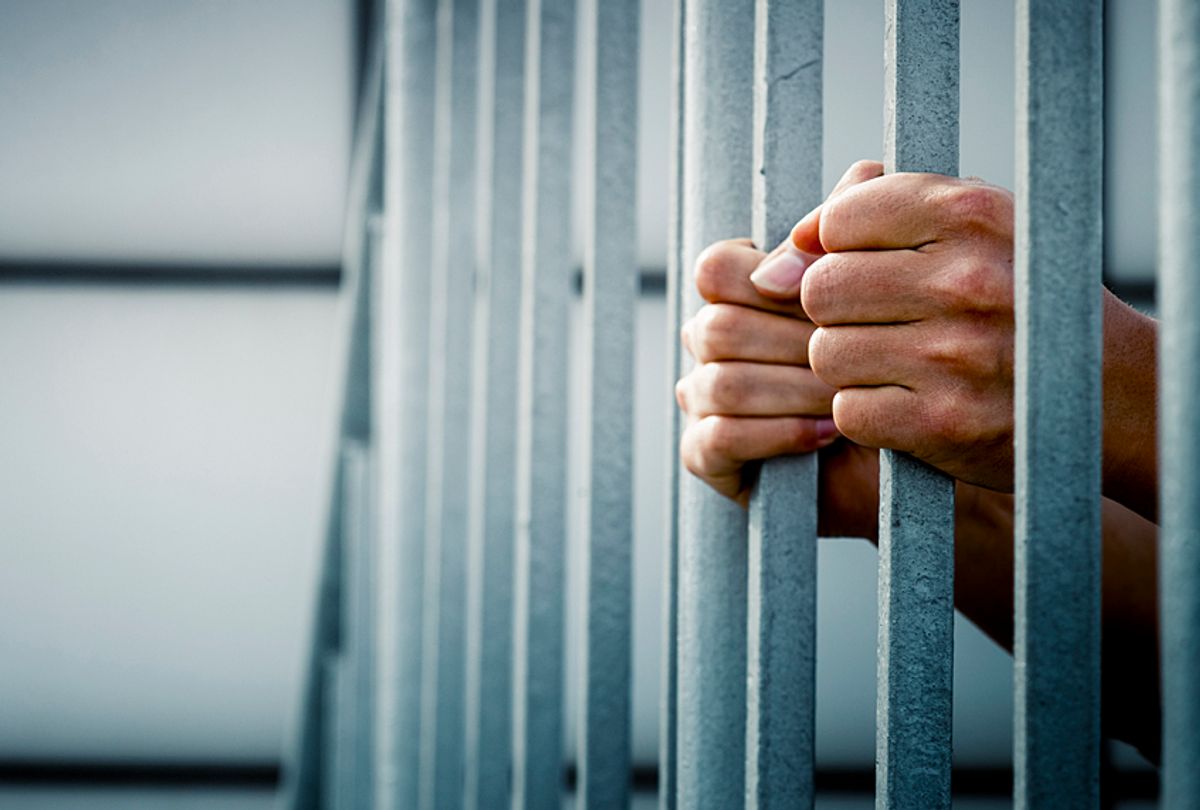During his speech at the 2016 Republican National Convention, Donald Trump painted a terrifying picture of the United States as a crime-ridden wasteland where people cower in fear in their homes, declaring, "I am the law-and-order candidate." The speech was, as most things are with Trump, based on a lie. Crime rates have dramatically dropped since their peak in the early '90s, for one thing. (Some cities have seen a recent uptick in murder, but overall violent crime remains at or near a historic low.) For another, the main thing that could be done to reduce violent crime — far stricter gun control — is virulently opposed by President Trump and his party. Still, Trump swayed enough people with his racially-loaded message of fear to win the election -- although not the popular vote, let's remember.
Despite this, criminal justice reform activists and experts believe that a more positive message on crime and law enforcement is a winner: We can lower incarceration rates in the U.S. without sacrificing public safety.
Inimai Chettiar, director of the Brennan Center's Justice Program, told Salon that she sees an "awakening of America to the problem of mass incarceration." She believes there's an "increasing consensus that we do need to reduce our prison population" and that the tough-on-crime posturing from Trump or Attorney General Jeff Sessions is "out of step with this current consensus."
Chettiar is a co-author, along with Lauren-Brooke Eisen, of a new Brennan Center report outlining a number of strategies that legislators and other government officials can pursue in order to reduce the startlingly high incarceration rates in the United States. This report is bipartisan, and not just in theory: People in both parties have increasingly started to understand that it's a major problem for a country, with 5 percent of the world's population having 25 percent of the world's prison population.
A 2017 poll from the Charles Koch Institute "reveals that 81 percent of Trump voters consider criminal justice reform important," the report explains. "Another, from Republican pollster Robert Blizzard, finds that 87 percent of Americans agree that nonviolent offenders should be sanctioned with alternatives to incarceration. And according to a 2017 ACLU poll, 71 percent of Americans support reducing the prison population — including 50 percent of Trump voters."
The report outlines a number of critical policies lawmakers can enact to reduce prison rates, such as passing sentencing reform laws, decriminalizing marijuana and diverting people to mental health services instead of jail. Importantly, the report focuses on federal, state and local policy ideas. Most people are incarcerated in state and local facilities, and the only way to truly reduce the prison population is for reform efforts to be focused on every level of government.
This is no doubt why there's been increased attention to the role local prosecutors play in creating the mass incarceration problem — and the role they can play in fixing it. There's been significant media coverage, for instance, of Larry Krasner, Philadelphia's new district attorney, who was elected after promising significant reforms to the prosecutor's office aimed at reducing incarceration rates. Now Krasner is making good on those promises, fighting the railroading of defendants and encouraging his attorneys not to seek maximum penalties for nonviolent or low-level offenses.
This is in direct contrast with how most prosecutors do things, Chettiar said, noting that "prosecutors are officially and unofficially rewarded . . . based on conviction rates, length of sentences and how zealously they enforce and punish defendants," a situation that developed in direct reaction to the "tough on crime" frenzy of the '80s and '90s.
While the Brennan Center report has some ideas for prosecutors and mentions the election of Krasner — as well as progressive prosecutors in Chicago, Dallas, Denver, Tampa and St. Louis — Chettiar cautioned that it's not enough to elect prosecutors who run on reform platforms.
“I worry that the election of these progressive prosecutors could potentially distract from the obligation of state legislators and congress and governors to act to change laws," she said. “It is equally important, if not more so, that our criminal laws and sentencing laws are changed."
For instance, the Brennan report encourages federal lawmakers to pass the Sentencing Reform and Corrections Act. On a state level, legislators can rewrite laws to eliminate mandatory minimum sentences, to reduce sentences overall or to eliminate prison altogether as a punishment for low-level and nonviolent offenses.
Still, the election of Krasner and other prosecutors like him is a sign that the political winds in many places are in fact moving towards reform. Much of the challenge now is for legislators to find the courage to rewrite laws and reduce incarceration rates, confident that the voters have their backs.
As for the 2018 election, putting forward criminal justice reform as a major campaign agenda item is a good way for candidates at all levels to distinguish themselves from the bellicose racist in the White House, who snuck into office on a false dystopian vision of America.
That is even more true now that gun control has rocketed to the top of the list of voter concerns, thanks to the aftermath of the Parkland shooting and the national outpouring of student activism. A platform highlighting support for stronger gun safety measures, coupled with support for criminal justice reform, can allow candidates to campaign on a platform of real public safety. There are many ways of reducing violent crime without resorting to mass incarceration and all the social and economic disruption it creates.



Shares